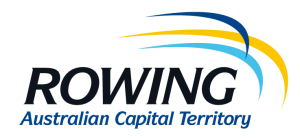Impacts of latest NSW restrictions on ACT sporting organisations and activities
As you may be aware, NSW Health advised further public health measures earlier this week to minimise the risk of COVID-19 transmission related to participation in community sports in NSW. The purpose of these updated recommendations is to help meet the NSW Government’s aim of no community transmission of COVID-19 and to support community sports to continue to operate safely.
The updated recommendations, including cessation of activities that result in mixing of participants from different regions, have raised concerns and questions from many sporting organisations in the ACT that either travel to participate in NSW based competitions or that have teams/participants from NSW regional areas within ACT governed competitions.
The following advice is provided to assist your understanding of current ACT Health advice relating to travel and of the implications of the NSW Health recommendations for ACT sporting organisations and competitions.
The current ACT public health advice is that people are urged not to travel to or from areas where COVID-19 outbreaks are occurring. Currently this includes:
• all of Victoria
• Greater Sydney
We encourage you to keep up to date on the latest COVID-19 affected locations in NSW by monitoring the NSW Health website.
For ACT teams/participants travelling to NSW
ACT teams/participants can travel to events and competitions in most areas of NSW, including surrounding regions. However, we strongly urge ACT teams/participants to reconsider the need for any travel to areas where there is known clusters of COVID-19. Currently this includes:
- all of Victoria
- Greater Sydney
Again, we encourage you to keep up to date on affected locations on the NSW Health website.
For NSW teams travelling to the ACT
NSW teams from surrounding regional NSW, and areas not identified by NSW Health, are fine to travel to the ACT to attend events and competitions.
We strongly discourage teams from COVID-19 affected areas from travelling to the ACT. Currently this includes Greater Sydney and other COVID-19 affected areas as identified on the NSW Health website.
For NSW teams/participants in ACT managed local region leagues
The NSW Health recommendations do not apply within the ACT. However, NSW and ACT teams participating in ACT competitions which involve travel for games in NSW should consider those recommendations. The NSW Government has published an FAQ here: https://www.sport.nsw.gov.au/sites/default/files/faqadvicesport.pdf
The principle of the NSW Health recommendations is to restrict activities to local competitions to avoid inter-mingling and potential community transmission. Competitions should be run within boundaries determined by state sporting organisations to meet this recommendation. The NSW Government’s FAQ requests that sport organisations and teams “consider the size and proximity of the Local Government Areas involved”, with Greater Sydney needing to be divided into at least 8 regions by state sporting organisations at their discretion to localise competitions.
For travel to NSW, in areas outside of Greater Sydney (i.e. regional NSW), existing competition structures or scheduling should aim to minimise the need for overnight travel. If overnight travel is required in order to participate in sporting activities in regional NSW, carpooling or other shared transport arrangements should be avoided. The use of shared accommodation facilities that would lead to mixing of people from different households should also be avoided.
Centres such as Queanbeyan, Goulburn, Yass, Cooma and Jindabyne fall within the NSW Government’s designation of the South East and Tablelands Region. The NSW Health recommendations are focussed on discouraging travel between different regions. Teams from these centres participate in many ACT sport governed competitions. Sport organisations and teams/participants should consider all factors in making their own risk assessment about travelling for competition.
For all teams and individuals, the below advice should continue to be followed:
- Do not travel, or participate in sport or training, if unwell.
- While travelling, teams need to maintain physical distancing and practise good hand and respiratory hygiene.
- If travelling interstate, ensure that you are up to date with the latest advice and Public Health Directions in the State/ Territory you are travelling to.
- Upon returning to the ACT, be aware of COVID-19 symptoms (fever, cough, sore throat or shortness of breath) and get tested, even with the mildest of symptoms.
Sincerely
Rebecca Kelley
Executive Branch Manager
Sport and Recreation
